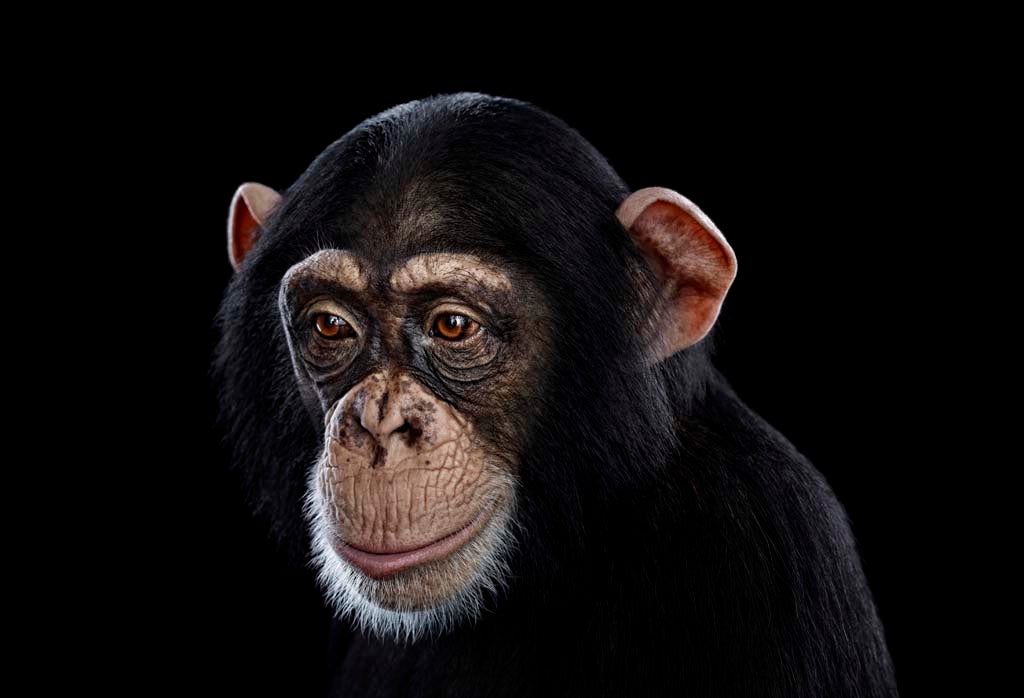Yes, chimpanzees should be given legal rights, just like us
One day we will look back on the treatment of intelligent animals with the same shame we feel about slavery


Today, lawyers from the Nonhuman Rights Project (NRP) will stand in front of a judge in the New York Supreme Court, Appellate Division, and argue that a 26-year-old chimpanzee called Tommy should be free, simply because he is a chimpanzee.
In asking that a chimpanzee be granted “bodily liberty” and moved to a sanctuary where he can live out his days with others of his kind in an environment as close to the wild as is possible in North America, a legal barrier that has separated humans from all other animals for centuries is close to being torn down.
Not too many years ago, many human beings were treated like property. Married women and children were simply the property of men, and many Africans were considered to be the property of white Europeans. But now people are waking up to the view that, as the author of The Color Purple, Alice Walker, put it, “The animals of the world exist for their own reasons. They were not made for humans any more than black people were made for white, or women created for men”. It is this sentiment which inspired PETA US' ground-breaking lawsuit against SeaWorld three years ago, which sought to establish that five wild-caught orcas deserved protection under the US Constitution's 13th Amendment, which prohibits slavery.
Perceptions started to change as far back as 1772, when abolitionist lawyers working on behalf of an American slave, James Somerset, filed a writ of habeas corpus to challenge Somerset's classification as a legal “thing”. In what became one of the most important trials in legal history, the Chief Justice of the Court of King's Bench, Lord Mansfield, ruled that Somerset was not property but, instead, a legal person, and Somerset was set free.
The Nonhuman Rights Project is using the same ancient writ of habeas corpus through which somebody who is being held captive seeks relief by having a judge call upon his or her captors to show cause as to why they have the right to (literally) have the body. Its legal claims are based on the best scientific findings on genetics, intelligence, emotions and social lives of these animals and are supported by the world's most respected primatologists.
Basically, as in PETA US' lawsuit under the 13th Amendment, the NRP is proposing that it's time to take the next step in our moral and legal evolution and recognise that certain non-human animals cannot continue to be exploited as property.
Tommy, the primate plaintiff, lives in a small cage at the back of a dark shed at a trailer sales park in New York state, with only a TV on a table to keep him company. There's no doubt that Tommy's psychological and physical needs are not being met in this barren environment and that a transfer to a sanctuary would do his welfare good. But that's not the point.
Keeping these highly intelligent, self-aware, autonomous, emotionally complex beings in any kind of captivity can never be justified. Chimpanzees belong in rain forests where they can forage for natural foods, make and use tools, build nests, groom each other and raise families. No amount of care can replace the natural lives of which they're deprived. Would any human swap freedom for a lifetime of captivity?
Human understanding of animals expands daily. In the past month alone, we've been treated to stories about how chimpanzees adopt new behaviour from each other and how they empathise by duplicating another individual's pupil size. Ethology now recognises not only chimpanzees but also all other animals not as “things” to dominate but as breathing, feeling beings with families, dialects, intellect and emotions.
Just as we look back with shame at a time when we enslaved other humans and viewed some as property less deserving of protection and consideration, it is unquestionable that future generations will look back on our treatment of non-human animals with deep shame.
Win or lose, this case continues to push the conversation about how we treat animals and how we can protect them. Our society has changed and evolved, and history has shown that the law evolves with it. Slavery is slavery, and it does not depend on the species of the slave any more than it depends on gender, race or religion.
Join our commenting forum
Join thought-provoking conversations, follow other Independent readers and see their replies
Comments